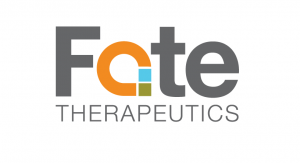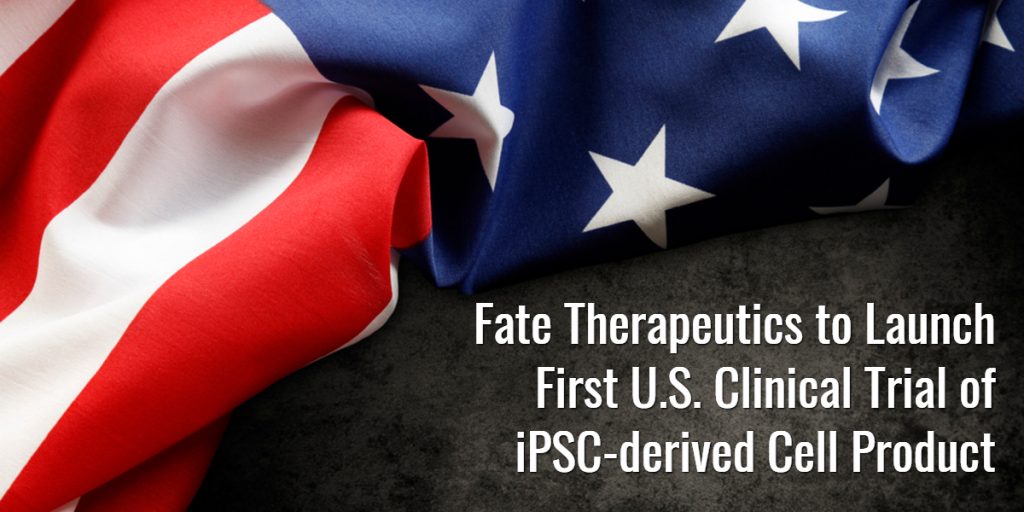
FT500 is a universal, off-the-shelf natural killer (NK) cell product candidate derived from a clonal master induced pluripotent stem cell (iPSC) line. Fate Therapeutics broke this exciting news in an announcement released November 30, 2018.
As stated in the company’s press release:
“The Company’s proprietary iPSC product platform enables mass production of off-the-shelf, engineered, homogeneous cell products that can be administered in repeat doses to mediate more effective pharmacologic activity, including in combination with cycles of other cancer treatments. Human iPSCs possess the unique dual properties of unlimited self-renewal and differentiation potential into all cell types of the body. The Company’s first-of-kind approach involves engineering human iPSCs in a one-time genetic modification event, and selecting a single iPSC for maintenance as a clonal master iPSC line.”
Other iPSC-Derived Cell Therapy Studies
While Fate Therapeutics will be the first company to launch an iPSC-derived cell therapy trial within the United States, it is not the first company to do so worldwide.
The world’s first investigation of an iPSC-derived cell therapy product began in 2014, when Masayo Takahashi of the RIKEN Center in Japan initiated a study to test the safety of iPSC-derived cell sheets in patients with age-related macular degeneration. While the trial was suspended in 2015 due to safety concerns, it was resumed in June 2016 using donor iPSC-derived cells.
The world’s first formal clinical trial of an iPSC-derived cellular product began when Australia-based Cynata Therapeutics (ASX:CYP) received approval to initiate a Phase I clinical trial of its iPSC-derived mesenchymal stem cell (MSC) product, CYP-001, in sites across the UK and Australia. Cynata treated its first patient with CYP-001 in May 2017. By August 2018, it had completed the Primary Evaluation Period for 15 patients enrolled in its Phase 1 trial.
The company is now preparing for its Phase 2 trial in its next indication, critical limb ischemia (CLI).
Japan’s iPSC Studies
Additionally, several physician-led studies are underway in Japan to investigate the use of iPSC-derived cell therapy products. These include studies for Parkinson’s disease and heart disease, as well as the use of iPSCs to create a supply of human platelets.
The Parkinson’s disease study is being undertaken by Kyoto University and CiRA in Japan, with the first patient treated November 2018 and six more in the queue to be treated.
The heart disease study is being undertaken by physicians at Osaka University, who will treat only three human patients, although a follow-up trial may enroll up to ten or more.
iPSC-derived platelets are also being undertaken by CiRA, who is aiming to begin treating patients in 2019. To produce iPSC-derived platelets, it will use white blood cells to create iPSCs and differentiate them into megakaryocytes, which are bone marrow cells that can manufacture platelets.
Spread of iPSC Clinical Studies
Today, there are now iPSC clinical studies either planned or underway within:
- Japan – Macular degeneration, Parkinson’s disease, heart disease, platelets (Physician-led studies)
- UK and Australia – GvHD (Cynata Therapeutics)
- United States – iPSC-derived NK cell therapy (Fate Therapeutics)
The question is, how rapidly will iPSC studies continue to populate on a global basis? Let us know your thoughts in the comments below.
Up Next: iPSC Market Accelerated by Clinical Studies in Japan, Australia, UK, and U.S.
